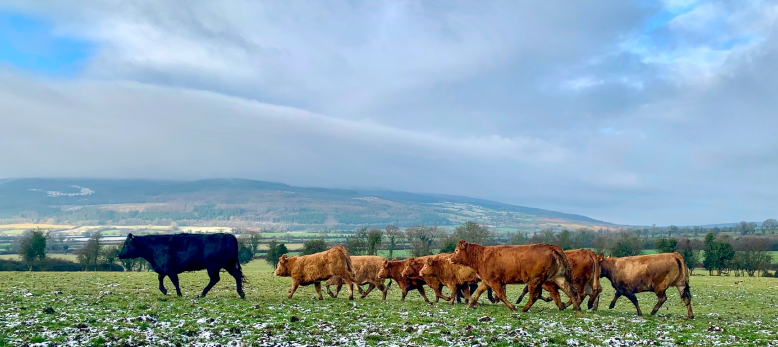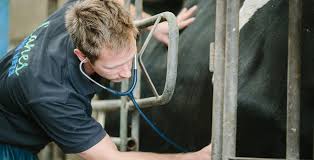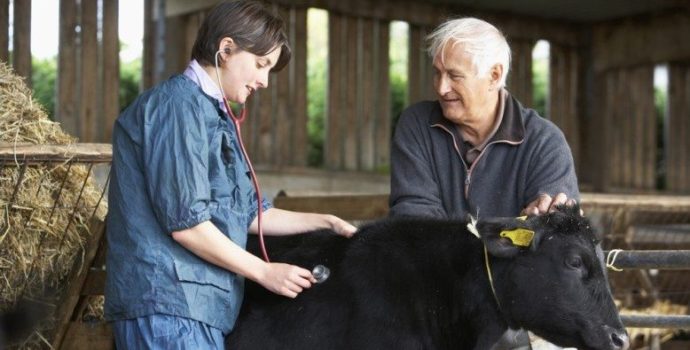Animal Health Reports
Animal Health Council Report May 2024

- Disease Trends
Current TB Statistics


TB Update
- TB Levels. TB levels have been allowed increase to unacceptable levels by DAFM. Breakdown in the vaccination programme for badgers has led to significant on farm outbreaks. Unacceptably high levels of TB continue to be found in badgers tested in vaccination areas. Density reduction programmes are not been implemented in a timely and effective manner throughout the country with staff resource limitations compounding the problem. The TB programme is at a point where a full appraisal of all aspects of the current programme is required, commencing with an assessment of the level and type on implementation of measures agreed over the past 4 years. Strong evidence points towards huge inconsistencies. The Wildlife Programme must immediately revert to a density reduction programme commencing in all areas where there are TB outbreaks in cattle. IFA will be meeting with senior DAFM officials specifically on the issues with the current programme.
- Roll out of increased support payments. Farmers who are eligible will receive payments backdated to 1st February. This will include top ups to Income Supplement payments, Depopulation Grant payments, Hardship Grant payments and Live Valuation payments where animals were valued above the previous ceiling amount.
- Wildlife Control Programme. DAFM have committed to an additional 26 FRS operatives for the wildlife programme. These positions and a number of TAO vacancies remain to be filled. IFA have raised this issue at the TBIG and a letter has been issued to the Minister for Agriculture to urgently address the matter. IFA have also called for a review of the Wildlife Programme in light of the unacceptable delays in providing the staff resources required in the programme. The suspension on recruitment in DAFM is undermining the ability of the Wildlife Programme to be implemented effectively.
- BVD Statistics



- Next Steps
- On track to attain recognised BVD Free status under EU Animal Health Law
- Key Considerations
- On attainment of recognised freedom vaccination would be prohibited
- Proof of freedom monitoring required.
- IFA Position
- Must protect the progress made.
- DAFM must seek facilitation of vaccination for period after attainment of Free Status
- Proof of Freedom must also be effective case detection.
- Tissue Tag Testing is the most effective and cost-effective case detection approach.
- DAFM must pay for all remaining testing in the BVD programme
- DAFM have provided €2.40 for max of 25 tests in 2024
- This funding falls short of the testing and associated costs for farmers in the programme
- The failure of the Minister to provide adequate funding for 2024 to remove the direct cost burden on farmers has called into the question the future role of the AHI concept and model in dealing with non-statutory diseases.
- The Department of Agriculture at this point are effectively using the AHI model to impose disease control/eradication programmes on the cheap, with farmers carrying almost all of the cost burden
- IBR
- A proposed program by AHI includes a cost of €40 million per year and a 16-year timeline for achieving eradication, along with movement controls on farms.
- The impact of IBR on dairy farms has been estimated at €88 million per year, with no assessment conducted for suckler and beef farms.
- The funding model remains a critical issue to be addressed in order to advance the programme.
- The move to include IBR testing in the NBWS has seriously undermined the efforts to develop a programme.
- IFA, at the last IBRIG called for the Minister for Agriculture to come forward with clear direction on IBR, including a funding model and responsibilities for development of the programme.
- The failure to provide adequate funding for the BVD programme by the Minister despite farmers investing almost €120m has severely hindered the development of the IBR programme
- IFA will not agree an IBR programme until a funding model for the programme is developed and agreed that reflects all of the beneficiaries of a National Programme
- Veterinary Medicine
- IFA continues to engage with stakeholders, including prescribers, suppliers, and veterinarians, regarding the Veterinary Medicinal Products, Medicated Feed, and Fertilizers Regulation Bill 2023, aiming to find a satisfactory solution for all parties.
- The latest draft of the Veterinary Medicinal Products, Medicated Feed and Fertiliser Regulations SI which DAFM discussed with IFA on the 12th of January 2024 contains provisions that are inconsistent with the views of IFA and adds significant extra cost and bureaucracy for farmers in sourcing anti parasitic products.
- The SI proposes to provide a validity period for a prescription for antiparasitics of just 3 months from the previously understood 12 months. Providing a validity period of these prescriptions of 12 months has been a key tenant of IFAs position to minimise costs on farmers and maximise the opportunity to competitively source these products.
- IFA fully accept the reduced validity period for antibiotics, given the importance of reducing AMR from a human and animal health perspective. However, this is not the case with antiparasitic products and given changing these to POMs is already a significant amend the issue cannot be compounded for farmers by also reducing the validity period of the prescription.
- The proposed construct of the NVPS also contains concerns, including access to and use of farmers data by DAFM and other agencies. It will also limit farmers ability to competitively source products if vets are not required to provide farmers with a printed copy of the prescription.
- National Deer Management Strategy.
- IFA acknowledged the progress being made in controlling wild deer populations following the publication of the Irish Deer Management Strategy Group`s report on the 6th of December 2023.
- The report recognises that deer densities in Wicklow in particular, but also in parts of Tipperary, Galway, Waterford and Donegal are above a sustainable level and that the wild deer are highly damaging to their surrounding environment.
- The development of the report involved a thorough process, including significant consultation with the IFA on the development of a framework to reduce the numbers of Deer nationally.
- However, the IFA stance firmly remains that the growing deer population is a considerable problem and it`s very important that the actions recommended in the Irish Deer Management Strategy Group`s report are implemented on the ground immediately.
- Fallen Animals
- EU Regulation requires the Department of Agriculture to provide the infrastructure for farmers to meet their legal obligations in relation to fallen animal disposal.
- The current infrastructure provided by DAFM does not provide a guaranteed collection service for all farmers in the country and fails to have a competitive cost structure for the service. Despite DAFM providing direct subvention to Fallen Animal Collectors under a scheme that has maximum fees allowable to be charged to farmers DAFM have no inspection system in place for compliance with this requirement.
- As was seen last December in the dispute between knackeries and renderers the current system is failing to deliver on its objectives through a combination of Department of Agriculture failures in the construct of the system and oversight of the subvention criteria.
IFA Proposal
- The entire fallen animal disposal system must be reviewed and the most efficient system that delivers guaranteed collection of fallen animals to all farmers in the country at competitive rates provided.




